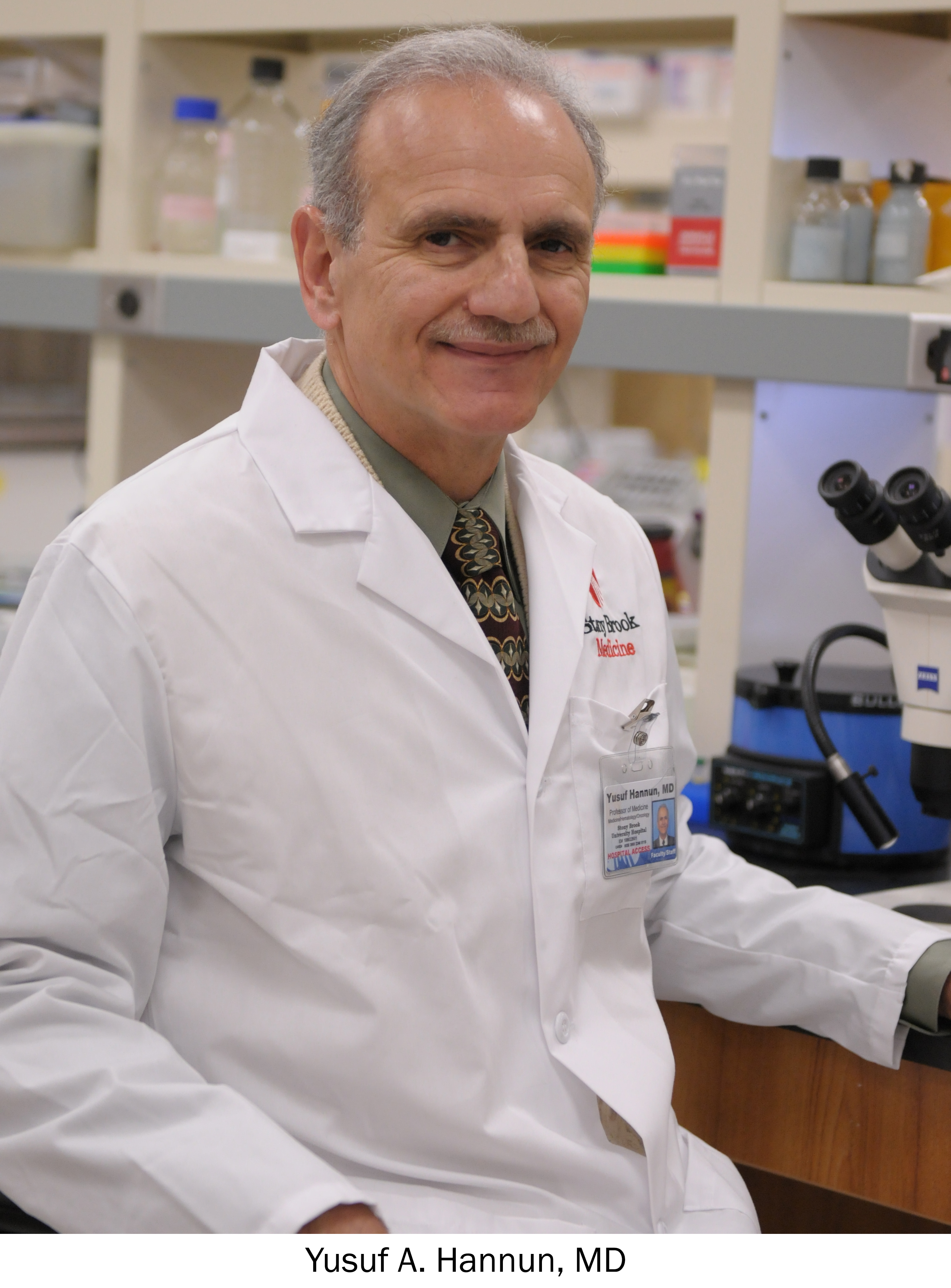 Joel Strum Kenny Professor in Cancer Research
Joel Strum Kenny Professor in Cancer Research
MART Bldg.
Lauterbur Drive
Stony Brook, NY 11794
Email: Yusuf.Hannun@stonybrookmedicine.edu
Lab Contact: Janet Allopenna, Lab Manager
janet.allopenna@stonybrookmedicine.edu
Education
MD with distinction: American University of Beirut Medical Center, Beirut, Lebanon; Internal Medicine
Fellowship: Duke University Medical Center; Division of Hematology-Oncology
Postgraduate training: Duke University Medical Center; Department of Biochemistry
Science
Our laboratory is focused on studies on bioactive lipids, with a special emphasis on sphingolipids. These studies have allowed us to propose a critical role for sphingolipids in eukaryotic stress responses. We are interested in understanding how sphingolipid metabolism is regulated under various conditions and in response to extracellular stimuli. We are also interested in defining the functions of bioactive sphingolipids, including sphingosine and ceramide. We perform our studies in human cancer cells as well as in yeast as a model organism.
Projects
- Project I - Sphingolipid Network in Yeast
Dissecting a network of sphingolipid-dependent cell regulation in yeast. In the yeast, S. cerevisiae, we find that sphingolipids are essential for the adaptation to heat and other stresses. Heat induces transient changes in sphingoid bases, sphingoid base phosphates, and in ceramide involving distinct metabolic pathways. These lipid signals then act to regulate downstream targets resulting in a network of sphingolipid-regulated responses. Our goals are to use a combination of biochemical, molecular, and modeling approaches to define the specific roles, mechanisms and functions of sphingolipids in the yeast responses to stress. - Project II - Regulation and Function of Neutral Sphingomyelinases
In mammalian cells, sphingomyelinase constitute key enzymes in the regulation of ceramide which has emerged as a key regulator of cell growth, differentiation and apoptosis. Many stimuli (such as TNF, heat, and chemotherapeutic agents) activate sphingomyelinases culminating in elevations in ceramide levels. Our goals are to determine the biochemical and molecular mechanisms by which these enzymes are regulated and hence function as nodes in cell regulation. - Project III - Regulation and Function of Acid Sphingomyelinase
Acid sphingomyelinase is deficient in patients with Neimann-Pick disease, and significant evidence points to multiple functions for this enzyme in cell regulation. We are focused on defining two forms of the enzyme: a lysosomal forma and a secreted form that show differential mechanisms of regulation and distinct functions. This has implications for roles of sphingolipids in cancer pathogenesis and inflammation. - Project IV - Ceramide activated protein phosphatases
Ceramide has emerged as a key bioactive lipid that can induce apoptosis, cell cycle arrest or terminal differentiation through the activation of serine/threonine phosphatases and subsequent modulation of specific downstream phosphorylated targets such as the retinoblastoma gene product and protein kinase C. We are studying ceramide-activated protein phosphatases in vitro and in cells. - Project V - Protein Kinase C
Our laboratory has a long history in the study of protein kinase C and its function in regulating receptor function. We have discovered a general role for protein kinase C in regulating trafficking of plasma membrane proteins and lipids by inducing the formation of a novel compartment, the pericentrion. Our goals are to determine mechanisms involved in the action of protein kinase C. - Project VI - Neutral Ceramidase
We have ongoing exciting projects on the regulation of this enzyme and its role in susceptibility to infectious organisms.

